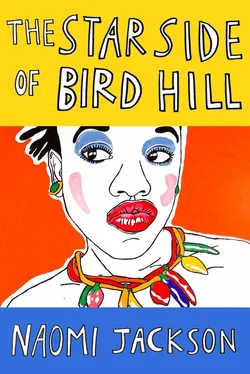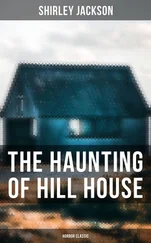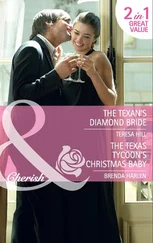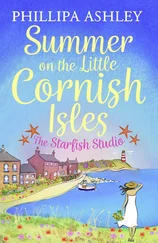Hyacinth was glad when she saw that Evangeline wasn’t in the passenger seat, even though it meant she had to referee an argument between Phaedra, Donna, and Chris, who each wanted to ride shotgun. Errol decided that Chris would ride up front with him first, Donna would switch seats with him at the petrol station, and Phaedra would have the honor of riding in front the whole way back. Phaedra was already tired of her father calling her his little princess, but after their day at the beach and now, with him taking her and her friends to the band house, she hated Errol a little less than she had when he first showed up. That said, she still was rankled by Chris’s unabashed admiration of her father, from the jeans that he sported to his encyclopedic knowledge of automobiles that enriched their game of “that’s my car” once they were on the road.
“I really like those glasses, Uncle Errol,” Chris said, referring to the aviator sunglasses Errol was wearing, which even Phaedra could tell were expensive.
“Thanks, big man,” Errol said, punching Chris affectionately on the shoulder.
When Donna and Chris changed seats, Phaedra turned to Chris and rolled her eyes at him. She said, “If I didn’t know you better, Christopher, I would say that you have a crush on my father.”
“Ewww,” Chris said.
“Now that’s not the sort of thing I would expect from my little princess,” Errol said.
“Maybe I’m not your little princess,” Phaedra said, low enough so only Chris could hear.
They drove for what seemed like hours, first dropping down to the bottom of the hill where they watched the rough waters smash against the old train tracks at Martin’s Bay. When they zipped past the cane fields in St. George, the kids stuck their heads out of the car windows to feel the wind against their faces and the stalks against their outstretched palms. In Oistins, they crept along in the late afternoon traffic and watched the fishermen’s wet, dark faces as they chopped and sold dolphin, marlin, and flying fish. Phaedra and Donna called to the birds that strutted along the edges of the fish market hoping for a stray meal.
Just past the first beach on the south coast road, they pulled into a driveway with streamers and balloons that declared this spot to be the Legendary Mas Camp band house.
A girl stood outside crying while her grandmother talked loud enough so that anyone passing by could hear. “I don’t know why you would want to go up there and embarrass yourself, as tall as you are. You would be towering over those children. You want to go up there and look like a poppet? That’s what you want? Wipe your face, y’hear.” Phaedra watched as the girl tried to stop her tears; she felt grateful for the fact that her grandmother never spoke to her with that kind of harshness.
Errol called “Inside!” to the house where a radio announcer was talking excitedly about the finals for the soca monarch competition, which was happening that evening at the stadium. Ten days before Grand Kadooment, Barbados was pulsing with Crop Over fever. It was hard to have a conversation about anything else, and everyone had an opinion about who might be crowned champion of the singing competition that night.
An older woman with a spritely air greeted them. “You come to look about costumes?” A coral necklace the woman wore shook against her wizened skin as she spoke. Phaedra’s grandmother told her that in the same way she could tell a woman’s pregnancy by her ankles, you could read a woman’s age from her neck. This woman’s neck was definitely older than Hyacinth’s, Phaedra thought.
“Yes, we did. It’s Mrs. Alleyne, right?” Errol asked. He cupped both her small hands in his large ones and gazed into her eyes.
“That’s me. But you can drop the ‘Mrs.’ Mr. Alleyne was my father and he’s gone on to better pastures.”
“All right then, Ms. A.,” Errol said. Phaedra watched the woman’s smile widen, and it made her remember how women acted around her father. One of the cashiers at Allan’s Bakery in Brooklyn had given Phaedra extra currant rolls for months, thinking that her stomach was the way to her father’s heart. During the brief period when her father, mother, Dionne, and Phaedra all went to church together, Errol caused such a stir among the women, who started fighting to set aside the largest slices of sweetbread for him at bake sales and finding excuses for Errol to work with them on various projects. Phaedra watched this older woman fall under her father’s spell, and wondered exactly what it was made of.
“And who do we have here?” the woman asked Errol, bending down to look at the children in a way that bothered Phaedra.
“This is my daughter Phaedra. And her friends Donna and Chris.”
“That’s funny, we don’t have many fathers coming in. Mostly mums.”
“Phaedra’s mother just passed away,” Errol said, pressing the meaty flesh of his palms into Phaedra’s shoulders.
“I’m so sorry for your loss,” the woman said mechanically, and Phaedra felt another spark fly from the woman to her father.
“Well, children,” the woman said, “the hour is late, but I can show you what I have left. We still have some ixora and flamboyant and birds-of-paradise for the girls. And for the boy… we’ll find something for the boy.”
Where the front room would usually have been, half-made sculptures of chicken wire, fabric, and sequins stood. Phaedra expected a dining room right past the arch in the living room, but instead there was a long worktable covered in costumes in various stages of progress. Two women and one man sat at the table, gluing, sewing, and cutting, their heads all bent in concentration.
Ms. Alleyne showed them to one of the back bedrooms, where the finished costumes hung on racks. Phaedra and Donna fingered the soft fabrics, the reds and oranges and pinks.
Ms. Alleyne let the girls look around before she said to Donna, “I have a girl from New York who was supposed to be a desert rose, but she’s not coming down again. What do you think of this costume?” she said, picking up a stretchy fuchsia top, a matching skirt, and a headpiece of petals made from painted cardboard.
Donna, who couldn’t resist the idea of having something made for a girl from the States, said excitedly, “We could wear that, right, Phaedra?”
Phaedra was awed by the costumes, their colors and then her imagination making them come alive in the same perfect design as her grandmother’s garden. She nodded and then went with Donna into the next room to try on the costumes. She could hear Ms. Alleyne speaking to Chris. The band house, like Hyacinth’s house on Bird Hill, was small, and sound carried over its plywood room dividers. “I’ve been waiting for a boy like you. My king costume is a royal palm tree, and it needs just the right person to wear it. Would you like to try it?”
Just then Phaedra and Donna came out in their costumes. Phaedra’s face was a perfect oval peeking out between the petals; the dusty pink color of the costume popped against the brick red of her arms and legs. Donna was eclipsed by the shine that radiated off Phaedra. Chris couldn’t speak, but Phaedra’s father did.
“I don’t know how you get to be so lovely, but I can see it, Phaedra, I can see you getting your looks,” Errol said.
Phaedra blushed in spite of herself. She looked down at her sandals and at the layers of ribbon and fabric that lined the floor of the band house.
“We’ll take them,” Errol declared.
Chris and Donna each pulled out tight wads of cash their mothers had given them, but Errol shooed them away. “This is my treat, kids. I know you all are going to be fantastic. If you win, I’ll take you out to Chefette.”
“What if we don’t win?” Phaedra asked.
Читать дальше












